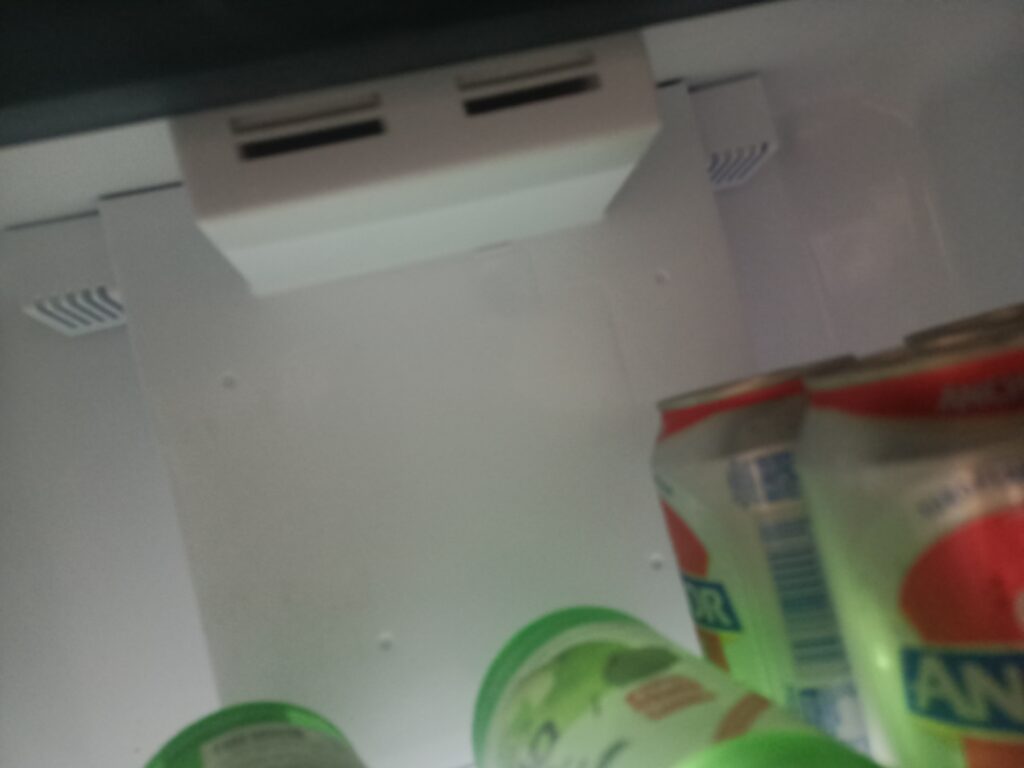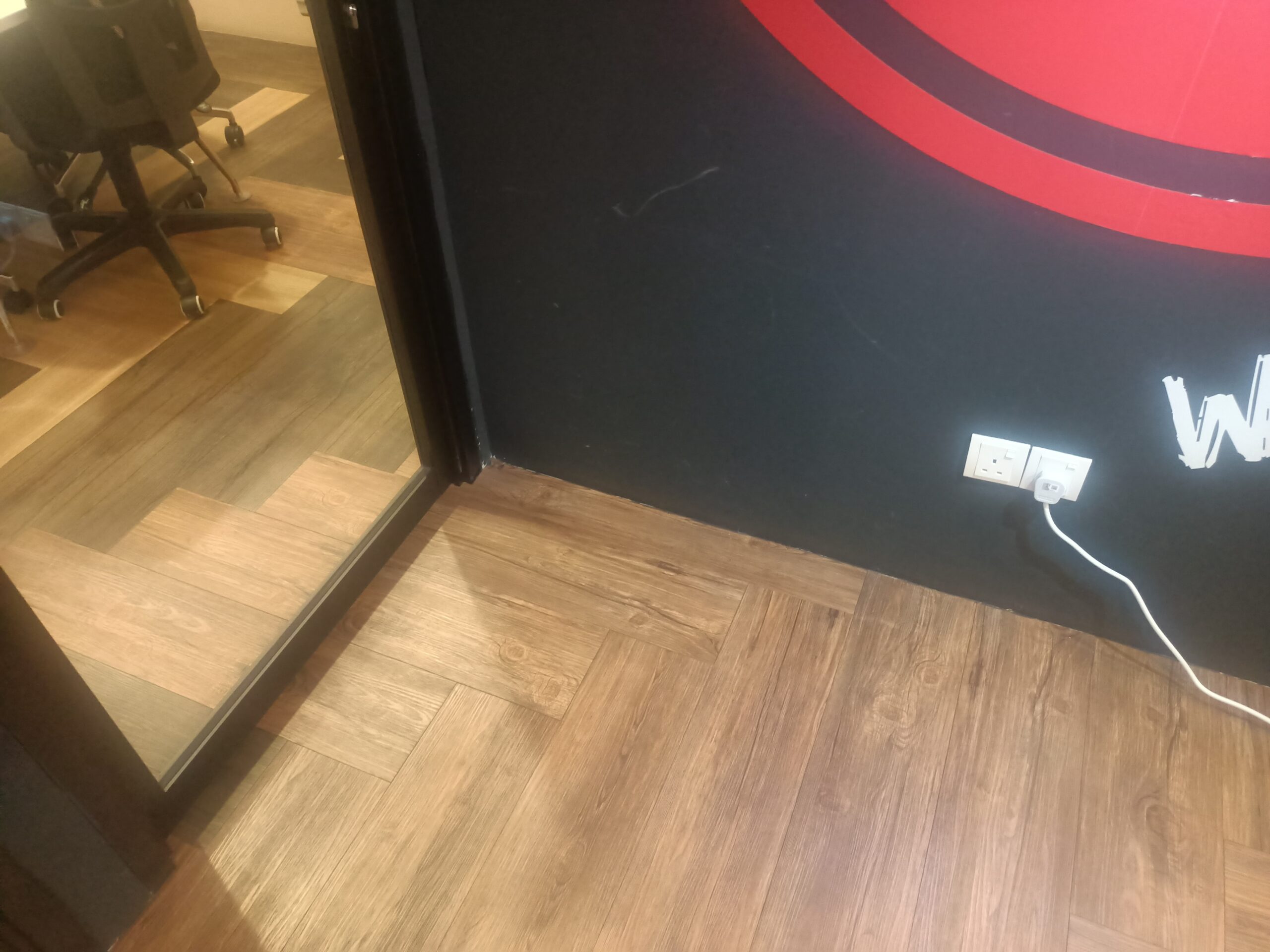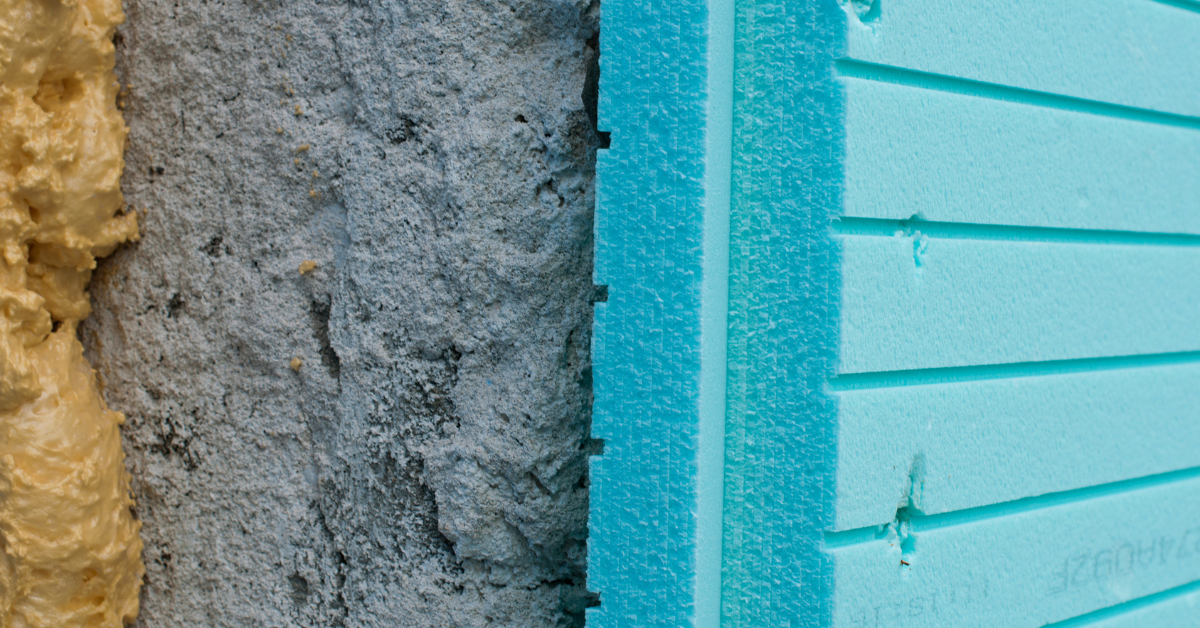A loud fridge is worth fixing. Not only can you get rid of that annoying buzz, hum, or rattling, but you will also save yourself time and money in the process.
Some reasons for a noisy fridge are easy to identify and fix yourself. Others can be trickier to get to the bottom of and require professional help.
In this article you can read 5 reasons for a noisy refrigerator, followed by ways to fix it.
Skip to:
How noisy should a fridge be?
All compressor refrigerators – which make up the majority of fridges on today’s market – will make some kind of low hum.
The hum is entirely normal, and is just the sound of the compressor doing its job; cooling your fridge.
Most fridges will emit a hum that is in the range of 0 to 50 decibels (dB). That’s quieter than appliances such as a kettle or smoothie maker.
A report published in the Journal of the Acoustical Society of America found that fridge noises which vary in pitch are most annoying. It was also found that any noise above 33 dB could be irritating to homeowners. Researchers found:
“Refrigerator sounds that had a fluctuation of pitch were rated as more annoying. The tolerance level for the starting phase of refrigerator noise was found to be 33dBA, which is the level where 65% of the participants in the subjective tests were satisfied.”
If your fridge is an older model or is just plain loud, you may wish to shop for a quieter model. Check out our article which covers the quietest refrigerators.
Reasons for a loud fridge
Rattling drain pan
A rattling noise coming from the bottom of your refrigerator may indicate that you have a loose drain pan . Rattling in general suggests loose components.
The drain pan, which you can see in the image below, collects water that runs off the defrosting coils. It uses a heating element to evaporate the water that collects – this prevents the pan from overflowing.

If this drain pan has become loose over time, the pan can vibrate and rattle, and have the knock-on effect of making other components – such as the plastic drain tube – become noisy. You may find it is most noisy when you are opening or closing the door.
This issue has a fairly easy fix. Jump to: Tighten up loose parts
Compressor issues
Your compressor (seen in image below) cools your fridge and circulates refrigerant in the appliance. A compressor that is old, not lubricated, or overheating, can make abnormal noises.

Noises from a faulty compressor could be a loud hum, buzz, or pulsating sound.
If a compressor is the issue, the noise will be coming from the back of your fridge. Depending on its location, noise from the back of the fridge may also be an issue with the condenser fan. We will come onto the condenser fan in the next section.
Bad door seals may lead to cold air leaking out and temperature instability. This can often stem from worn out or poorly sealed door gaskets. The result can be a compressor that works overtime to cool your fridge and is noisier due to the strain.
Your compressor may need repairing or replacing if it has become very loud. Skip to: Call for professional help.
Worn or dirty condenser fan
Your fridge may have a condenser fan, especially if it is a larger model. You can check if you have one by turning off your fridge and checking behind the access panel at the back.
Check for any visible signs of wear and dust or grime build-up at the condenser fan. This could be clogging the fan and preventing it from doing its job properly.
A faulty condenser fan will need replacing. There may be an imbalance that is stopping the blades from rotating unobstructed and making the noise. Skip to: Call for professional help
There may be a simple fix if your condenser fan is dirty rather than faulty. Skip to: Inspect and clean
Other loose internal components
It’s not just the drain pan that could become loose and lead to rattling. If any part of your fridge is loose – from shelves and drawers to fan covers, tubing, and coils – it could lead to noises such as vibrations or clacking.
Jump to: Tighten up loose parts
Settling in sounds
If you have a new refrigerator, it could be noisier than normal for a while. As the materials of the fridge become accustomed to cold temperatures, plastic can contract.
This movement in the materials may lead to creaking or humming that is louder than normal. If you’ve just bought the fridge, give it a few days or weeks and see if these noises settle down.
Blocked airflow
It’s just the condenser fan that should be free from dust, hair, and debris. Other parts of the fridge, such as vents or condenser coils, may become blocked.
Your fridge needs optimum ventilation and airflow for it to operate to the best of its ability. When airflow is restricted, the whole operation becomes louder.
Ways to fix a noisy fridge
Inspect and clean
As a first port of call, inspect your fridge and its components.
You should be looking for signs of damage or wear and tear. Damaged or broken parts can be replaced yourself – if you want to have a go – or they can be reported to a professional technician, who can repair or replace them as they see fit.
Aside from parts that are cracked, warped, or not secure, you should also keep an eye out for parts that are excessively dusty, dirty, or grimy. Pay particular attention to the fans – the condenser fan (located at the back of the fridge) and the evaporator fan (seen in image below) located in the back of the internal compartment (you might need to remove the internal back panel).

Fan blades are a prime candidate to pick up dust and debris. Wipe them with a cloth or soft brush. If blades are bent, you may want to have a go at straightening them yourself using pliers.
Perform a sound check
Put your hands along walls and components while listening closely to feel exactly where vibrations emit from most. This can help you to pinpoint the root cause.
Check to see where mechanical sounds like grinding or clicking are coming from. Isolate hisses or air leaks that indicate a bad door seal.
Repair or replace door seals
Ensure a tight door seal by closing it on a dollar bill or slip of paper in various spots. There should be clear resistance when pulling paper out.
You can repair cracked gaskets by applying petroleum jelly or glue sealant strips. Replace worn seals that are loose, torn, or missing sections.
Unblock airflow
You can use a crevice tool or vacuum to remove pet hair, crumbs, and dust buildup from condenser coil fins underneath or behind the unit plus along rear exterior vents.
Pull your fridge out and clean the dust on the compressor at the bottom back. Ensure that there’s adequate space clearance around the fridge so that airflow isn’t obstructed.
Tighten up loose parts
While you made an initial inspection, you should have looked inside all compartments as well as the back panel and fan housings for any loose, vibrating, or poorly secured components.
Tighten up screws and properly align parts. Ensure that shelves, brackets, tubing, and wiring are secured properly. You can tie them back into place with twist ties or wire.
Some parts of this job, such as securing rattling coils, may be best done by a professional.
Adjust leveling legs
Use a bubble level on top and side of the fridge to ensure it’s evenly balanced. Appliances that aren’t level can lead to alignment issues over time; causing strain that results in louder operation.
Gently turn leveling feet at base corners to adjust the tilt.
When to call for professional help
A starting point should be to see if you can identify the source of the noise. Then turn your fridge off, inspect for damage, give all components a clean, and tighten up any loose parts. Check for air leaks and ensure all seals are tight.
Once you’ve ticked off these checks, if the noise problem persists, it might be time to call in the experts. If you have a mechanical problem with a part such as the compressor, fans, or an unidentifiable fault, this is often best checked by a professional.
Repair pros have specialized tools and expertise finding issues plus parts access. Shop around! – get multiple repair estimates before approving costly component replacements.
Loud Fridge FAQs
We hope we’ve given you an idea about what the cause of your noisy refrigerator could be. Here are some other frequently asked questions which may cover the issue:
Why is my fridge making a loud popping noise?
A loud popping or cracking sound usually stems from the contraction and expansion of components like lines and valves when the compressor cycles on or off. Some make this normal noise more than others.
Ensure the fridge isn’t cooling unevenly. Have it examined if popping noises seem excessively loud or frequent.
What does a loud humming noise from the fridge mean?
Constant humming or pulsating noises typically indicate cooling system issues with the compressor failing, wearing out, or overheating due to airflow restrictions, faulty parts, or low refrigerant. A repair pro can troubleshoot issues and identify the best fix options.
My fridge rattles and shakes loudly, what should I check?
You can often trace loud rattling noises that shake or move the whole back to broken fan blades, a loose internal component, or compressor mount problems.
Unplug power before carefully inspecting vents, housing, and machinery at the back of the fridge for anything broken, poorly secured, or vibrating parts in need of repair.






